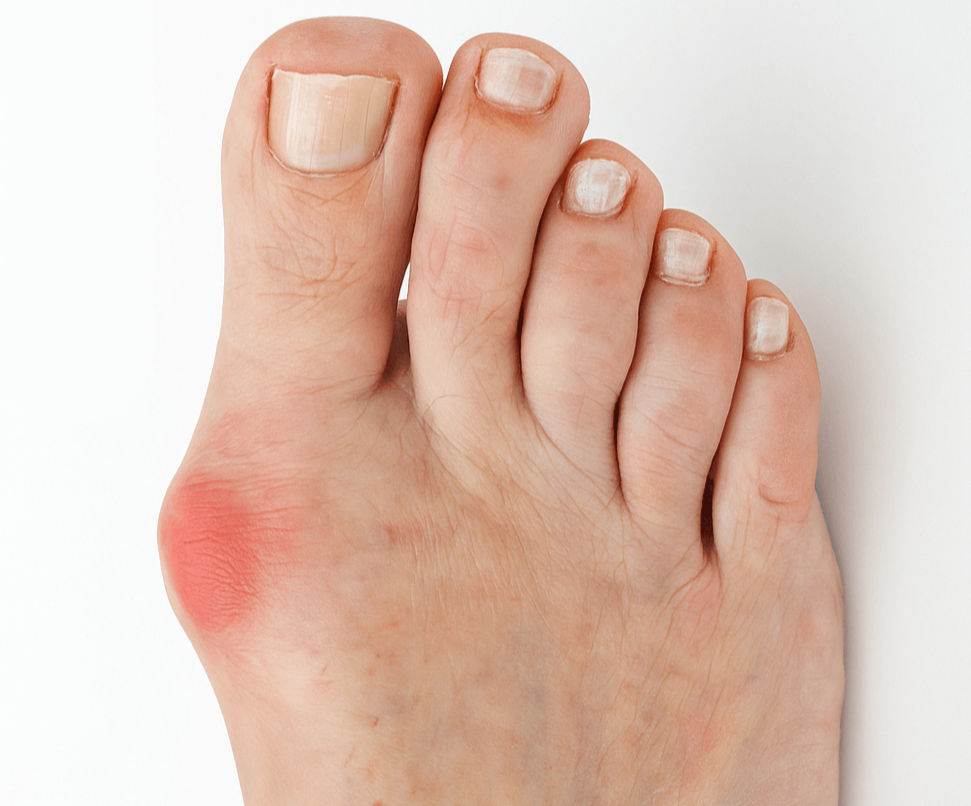Understanding Corns, Calluses, and the Importance of Routine Care
- Cristina Varon
- Mar 14, 2025
- 3 min read
Updated: Jun 13, 2025

When it comes to foot health, many people ignore minor irritations until they become painful problems. Corns and calluses are among the most common issues seen in podiatry clinics.
Although they might seem harmless at first, if left untreated, these conditions can significantly impact mobility and quality of life.
In this blog post, I'll explain what corns and calluses are, how they differ, why routine care matters, and what you can do to keep your feet healthy, comfortable, and pain-free.
Understanding Corns, Calluses and Routine Care.
Both corns and calluses are areas of thickened skin that develop because of repeated pressure or friction. They’re your body’s way of protecting sensitive skin—but without proper management, they can become uncomfortable or even painful.
Corns
Corns are typically small, round, and deeper than calluses. They often develop on non-weight-bearing areas of the foot, such as the tops and sides of toes. There are several types of corns, including:
Hard corns – usually found on the tops of toes or outer edges of the foot
Soft corns – appear between the toes and are usually softer due to moisture
Seed corns – tiny and often found on the bottom of the feet
Corns can become quite painful, especially when pressed, and often feel like there’s a pebble in your shoe.
Calluses
Calluses are larger, flatter areas of thickened skin, commonly found on weight-bearing areas such as the heels, balls of the feet, and along the sides. Unlike corns, calluses are not usually painful but can cause discomfort if they become too thick or dry out and crack. Both corns and calluses are your body’s natural response to pressure, but proper routine care is essential to prevent them from becoming more serious.
What Causes Corns and Calluses?
The most common causes of corns and calluses include:
Poorly fitting footwear – Shoes that are too tight or too loose can cause friction and
pressure.
Abnormal gait or posture – Uneven weight distribution can lead to localized thickening
of the skin.
Prolonged standing or walking – Especially on hard surfaces, this can increase the
chance of developing thickened skin.
Foot deformities – Bunions, hammertoes, or other structural issues can increase the risk
of corns and calluses.
Lack of foot care – Irregular routine care often leads to buildup of dead skin and the
development of these conditions.
Understanding the underlying cause is crucial in preventing recurrence, which is where regular podiatric routine care can make all the difference.
Why Routine Care Is Essential
Many people only seek treatment when corns or calluses become painful. However, regular routine care can prevent these issues from progressing and support overall foot health.
Benefits of Routine Foot Care
• Early detection of pressure points or skin changes
• Professional removal of thickened skin before it becomes painful
• Advice on proper footwear to prevent recurrence
• Skin hydration and nail care to avoid complications
• Monitoring for underlaying health issues in high-risk patients
Incorporating routine care into your lifestyle is a simple and effective way to keep corns, calluses, and other foot issues at bay.
When to See a Podiatrist
If you experience any of the following, it’s time to seek professional help:
Persistent pain or discomfort
Visible inflammation or signs of infection
Cracked heels or skin breakdown
Recurring corns or calluses
Existing health conditions like diabetes
A podiatrist can not only treat your current condition but also provide personalised routine care plans to prevent future problems.
Expert Care You Can Trust
I understand how much corns, calluses, and a lack of routine care can affect your comfort and
mobility. That’s why I take a personalised approach with every patient, offering tailored treatments and prevention advice to suit your unique needs.
With clinics in Bicester and Berkhamsted, I offer professional care in a welcoming environment—helping you feel relaxed, understood, and confident in your treatment plan.
Whether you’re dealing with stubborn corns, thickened calluses, or simply want to maintain good foot health through regular routine care, I'm here to help
Book Your Appointment Today
Don’t let corns and calluses slow you down. Prioritise your foot health with expert routine care you can trust.
Book your appointment today, and let’s take the first step together toward healthier, happier
feet.






Comments